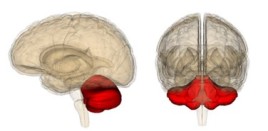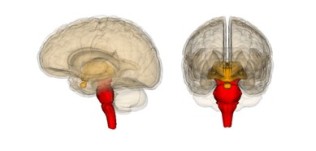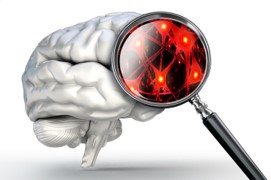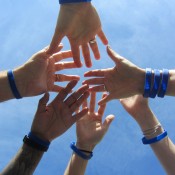
Functional Neurology & Neuroplasticity
Help Your Brain, Help Your Body
by Dr. Daniel Hanson, D.C. D.A.C.N.B
of Hanson Chiropractic Neurology
(Presented to Seattle Dizzy Group on 3/16/19)
This presentation gives an overview of functional neurology including how brain-based therapies work to promote natural healing through neuroplasticity which can help improve balance and reduce chronic vestibular symptoms such as dizziness, headache, and brain fog.
What is Functional Neurology?
Many people with neurological or vestibular/balance disorders suffer from debilitating imbalance and dizziness/motion sickness (feeling of being on a boat, spinning of the room, abnormal sensations of movement, etc.). Functional neurology utilizes chiropractic techniques and specialized therapies to restore balance in the musculoskeletal, cerebellar, vestibular, and cortical system. Personalized functional neurology exercises create neuroplasticity which helps to alleviate a patient’s chronic symptoms and improve their balance issues.
- Conditions Functional Neurology Can Treat:
- Balance Problems
- Dizziness
- Headache
- Brain Fog
- Chronic Pain or Fatigue
- Mal de Debarquement Syndrome
What is Neuroplasticity?
Neuroplasticity is the ability of the brain to reorganize itself, both in the structure and how it functions.
- How does it work?
- “The brain that fires together, wires together”
- Cellular Immediate Early Gene Production
- Leads to mitochondrial production of protein (i.e. “the building blocks of life”)
- How do we implement this?
- Brain-based therapies in clinic and functional neuro exercises specific to the individual for homework
What are the Benefits of Functional Neurology & Neuroplasticity?
- Long Term Results
- Works best with intensive programs
- “Plastic” Change
- Overall brain health improved
- Influence any aspect of your life!

What is Breaking Down in the Body Causing Symptoms?
The Brain
- Parts of the Brain:
- Frontal Lobe
- Parietal Lobe
- Temporal Lobe
- Cerebellum
- Brain Stem

- Frontal Lobe
- Irritability
- Mood Changes
- Anxiety
- ADHD/ADD
- Working Memory Loss
- Impulse Control Issues
- Inhibitory Control Issues
- Brain Inhibitory Pathway Compromise
- Parietal Lobe
- Balance
- Eye Movements (Pursuits)
- Pain Receptors
- Somatosensory Cortex


- Temporal Lobe
- Long Term Memory
- Entorhinal Corex
- Memory
- Navigation
- Perception of Time
- Hippocampus
- Memory Relay Station
- Frontal Lobe to Temporal Lobe
- Memory Relay Station
- Emotional Modulation

- Cerebellum
- Primary area affected by head injuries or whiplash
- “The Little Brain”
- Modulates and Coordinates all Movement and Thought
- Main communication body to the cortex
- Involved with:
- Balance
- Posture
- Motion
- Eye Movement Integration
- Inhibition of the Vestibular Output

- Brain Stem
- Mid Brain (Mesencephalon)
- Pons
- Medulla Oblongata
- Cranial Nerves are located in the region and are directly impacted by concussions as well as vestibular disorders, balance problems, and dizziness
- Autonomic Control
- Sympathetic
- Parasympathetic
- Gut-Brain Axis
The Vestibular System
- What is the Vestibular System?
- Controls reflexes of the eyes
- Controls reflexes of the body
- If the Vestibular System Malfunctions:
- Bad function can mean perceiving too much, too little, or the wrong direction of movement
- Vestibular Rehabilitation Therapy
- Uses habituation exercises in order to promote compensation
How the Vestibular Otolith Organs Work
The Vestibular-Brain Connection

Assessing Vestibular/Cerebellar Function
- Eye Movements
- Gait
- Balance
- Limits of Stability
- Reactions to Perturbation
- Cortical Cerebellar
- Integration
- Evaluation
How Can Functional Neurology Help?
- Total Brain Solution Program
- The V3 Exam System
- V1: Cortical Integration
- Functional Neurological
- V2: Vestibular/Cerebellar
- Balance and Function
- V3: Musculoskeletal
- Structure
- V1: Cortical Integration
- Eye Tracking & Posturography

- Right Eye Testing & Balance Tracking System (FDA cleared)
- Measures:
- Brain Stem – Gaze fixation
- Frontal Lobe – Saccadic eye movement
- Parietal Lobe – Pursuit eye movement
- Cerebellar – Eye movement monitor and control
- Pons – Burst activity of eye movement
- Vestibular Apparatus – Canal and otolith VOR reflexes and associated eye movements and integration
- Measures:
- Right Eye Testing & Balance Tracking System (FDA cleared)
- Functional Neurology
- Brain Based Therapies
- Drug Free, Surgery Free Therapies
- Create Neuroplasticity in the weak pathways
- The V3 Exam System
Example of Post Treatment Patient Improvements
- Being able to walk quicker at ease, more free to walk down stairs and less trip prone going up
- Deeper night’s sleep
- Less pain when sleeping on side
- Tightness and locked up feeling around neck, behind ear and around the jaw extremely lessoned
- Ability to work scheduled shifts with less pain or neck or shoulders locking up
- Able to hold clarity of vision for long periods, blurry vision is less intense and light and sound is less extreme
- Able to enjoy her love of music again, sometimes able to start singing with it again
- Family, friends, and coworkers noticed her spirits and big smile come back
- Able to track and process cars in front and around her
- Able to handle windshield wipers and light sensitivity to brake and blinker lights
- Before the patient felt confused in the space around her, having a foggy feeling with difficulty processing what’s around her
- Can drive at night without dark shade sunglasses
- Even able to endure high beams
Individualized Specialized Treatment
Every person is an individual!
- Each case is unique
- Different focuses
- Different reactions
- Different status before the symptoms
- Different abilities to recover (genetic influences)
- Treatments should be individualized as well
- Different functional losses
- Different symptoms
- Different mechanisms
How Patients Get Started
- Free Consultation
- To make sure you are a great fit!
- Functional Neuro Exam
- Frontal Lobe, Parietal Lobe, Temporal Lobe, Cerebellum, Vestibular System, and Brain Stem integration
- Testing, Measurement and Analysis
- Frontal Lobe, Parietal Lobe, Temporal Lobe, Cerebellum, Vestibular System, and Brain Stem integration
- Blood Lab Analysis
- Metabolic Assessment Forms
- Brain Assessment Forms
Dr. Daniel Hanson, D.C. D.A.C.N.B
of Hanson Chiropractic Neurology
Dr. Hanson is one of only a few Board Certified Functional Neurologists in Washington State that focuses his expertise in chiropractic neurology. He has been in practice for 22 years and specializes in neurological, musculoskeletal and pain disorders without drugs or surgery.
“If you are suffering from numbness, pain, or other symptoms that are debilitating, progressing and affecting your life negatively then I would value the opportunity to help you. I find it very rewarding to help people with these symptoms and functional neurological problems. I see this daily in practice and will do everything I can to help you improve your symptoms and life.”
- Board-Certified Functional Neurologist
- Diplomate of the American Chiropractic Neurology Board since 1997
- 500+ hours of training specialized in functional neurology
- Practicing in Redmond, Washington for 23 years working with brain conditions and brain injuries on a daily basis
*******
Presentation information is not meant to be taken as medical advice.
Presentations posted online may include discussion notes, links, images, and other information added by Seattle Dizzy Group.
*******
© Copyright 2019, Seattle Dizzy Group. All rights reserved.















this is great information
I used to see one before and they helped me a lot — I may make an appt to see him while I am mainland —
Thank you –
jason
“Kings loose crowns; teachers stay intelligent,” (L. Parker, ’87)
________________________________
By: J Waldow on April 1, 2019
at 8:40 am
[…] 2019, we had guest speakers on the topics of “Cervicogenic Dizziness” and “Functional Neurology & Neuroplasticity” as well as “Persistent Postural-Perceptual Dizziness […]
By: Take A Step Towards Balance In 2020 | Seattle Dizzy Group on January 31, 2020
at 7:43 pm